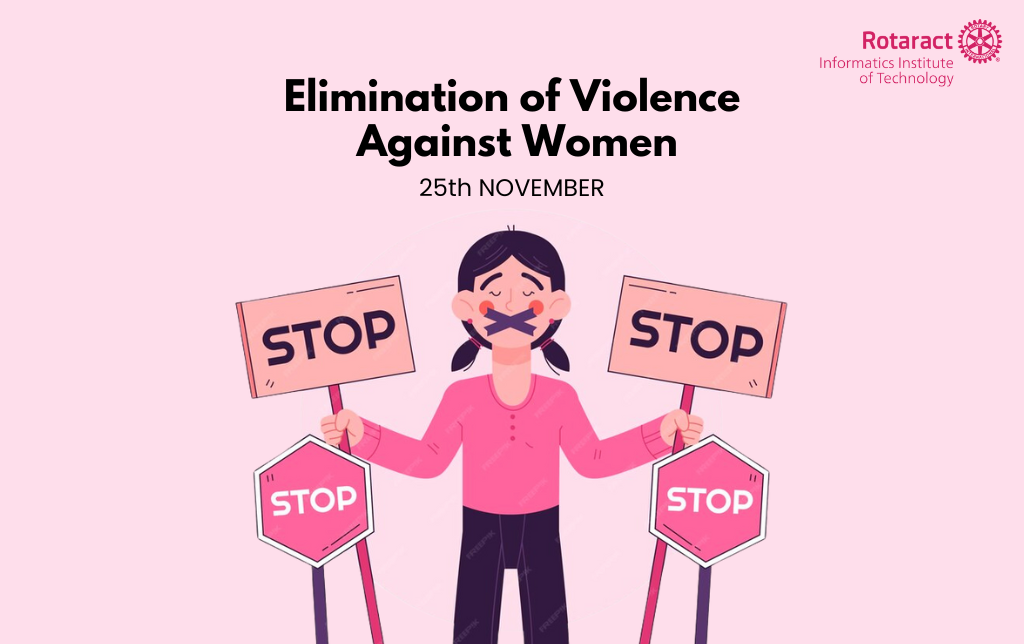
Break the Chains: The Urgent Call to End Violence Against Women
Imagine stepping outside your home, only to be gripped by the suffocating fear of violence lurking in the shadows. This is the grim reality for millions of women around the world who live in constant dread of the violence that could strike at any moment. Every minute, a woman somewhere becomes a victim of brutality—silent screams lost in the void, lives shattered, and futures extinguished. This pervasive violence is not an abstract issue; it is a devastating truth that manifests itself in countless ways—physical, emotional, mental, sexual, and verbal. Women are not safe in their homes, workplaces, or even on the streets, forced to navigate a world that too often disregards their safety and dignity.
Physical violence can leave visible bruises but often masks the deeper scars that linger long after the wounds heal. Emotional and mental abuse can be even more insidious, eroding a woman's self-worth and sense of agency over time. Sexual violence robs a woman of her autonomy and safety, often perpetrated by those who should protect her. Verbal abuse echoes in a woman’s mind long after the words are spoken, creating a cycle of self-doubt and fear that can follow her for years. This violence is everywhere—domestic settings, workplaces, and public spaces—and it must not be tolerated.
Take, for instance, the harrowing story of Gisèle Pélicot. Her life turned into a waking nightmare at the hands of the very man who was supposed to cherish her. Gisèle was married to a man who betrayed her trust in the most horrific ways imaginable. Drugged by her husband, she became a victim of repeated rapes, invited into her home by those he deemed worthy of violating her. He recorded these brutal acts, stripping away her dignity and humanity. “The person who promised to love me was the one who shattered my soul,” she poignantly shared. Gisèle’s story serves as a stark reminder that violence can come from those we love, a reflection of the dark truths that permeate our society.
The exploration of these themes in It Ends With Us resonates deeply with the realities many women face. The protagonist, Lily Bloom, confronts her own experiences with love and violence, ultimately challenging the man she loves, Ryle, to recognize the gravity of his actions. When Lily asks Ryle, “If one day you had a daughter, what would you say to her? If the person she loves is hurting her, what would you do?” it forces him—and us—to grapple with the uncomfortable truth of abuse. Lily’s words highlight the necessity of accountability in relationships and the importance of recognizing the signs of harmful behavior. Her courage to confront Ryle about his actions illustrates that love should never be synonymous with pain, and it pushes him to confront the severity of his actions in a profound way.
This issue is not limited to just one woman; it could be your mother, sister, daughter, significant other, or friend. Every day, they could be walking through life in fear of the violence that may find them. The urgency of addressing violence against women cannot be overstated. This is not merely a women’s issue; it is a crisis that affects us all. When women are unsafe, families fracture, communities crumble, and the very foundation of society is weakened. Every act of violence reverberates, leaving scars that can last a lifetime for those left behind—mothers, daughters, friends, and colleagues. We must stand together against this violence and challenge the cultural norms that allow it to persist.
Every woman deserves to live free from fear, to walk the streets confidently, and to pursue her dreams unburdened by the threat of violence. We must foster open dialogues about consent, respect, and healthy relationships. We must advocate for laws that protect women and hold perpetrators accountable for their actions.
To those who inflict violence, hear this: Your actions have consequences. Each act of aggression is a betrayal of trust, a violation of another’s humanity. You are not just harming the women in your life; you are tarnishing your own soul and contributing to a culture that perpetuates pain and suffering. Recognize that real strength lies in compassion and respect, not in domination and fear. If you find yourself in a position of power over someone else, remember that it is your responsibility to uplift, not to oppress. Change begins with you—choose to be better, to break the cycle, and to seek help if you need it.
As we observe the International Day for the Elimination of Violence Against Women, let us commit to being the change-makers. Let us stand in solidarity with survivors like Gisèle and declare, “Enough is enough.” We must embrace the harsh truths of this reality and take decisive action to put a stop to the violence. Silence is no longer an option. We must break the cycle of violence, fostering a culture rooted in empathy, respect, and equality.
Together, we can ensure that every woman has the opportunity to live without fear and to thrive in a society that values and protects her. Stand up, speak out, and let us pave the way for a future where no woman suffers in silence. Every life matters, and every voice deserves to be heard. This fight begins with us. Together, we can create a world where love does not hurt and every woman can flourish without the shadow of violence looming overhead.
But let’s confront this reality head-on: What if the next victim of violence were your mother, sister, daughter, significant other, or even a stranger? Would you remain silent, or would you take action? It ends with us. Together, we can create a world where love does not hurt, and every woman can flourish without the shadow of violence looming overhead.






